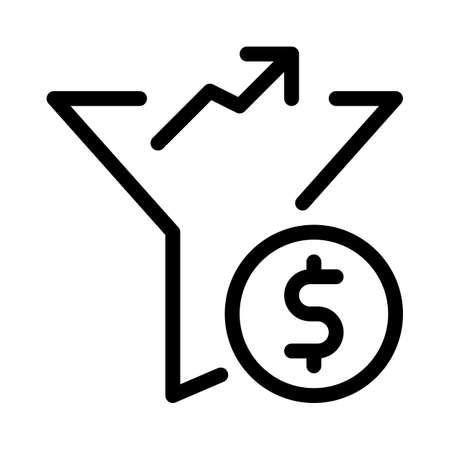Understanding the UK Coffee Landscape
The UK coffee industry has evolved into a dynamic and diverse marketplace, characterised by discerning consumers and a growing appetite for quality and sustainability. Over recent years, coffee culture in Britain has flourished beyond high-street chains, with independent cafes and artisan roasters shaping a more sophisticated landscape. Key trends include a marked shift towards specialty coffees, single-origin beans, and traceable sourcing, reflecting both global influences and local priorities. Consumers are increasingly aware of ethical sourcing, environmental impact, and the story behind every cup—driving demand for transparency throughout the supply chain. Sourcing locally is no longer just about proximity; its about supporting British businesses, reducing carbon footprints, and fostering community ties. Building relationships with local and ethical suppliers has become a strategic imperative for brands seeking to resonate with today’s UK coffee drinker, ensuring that authenticity and responsibility remain at the heart of every brew.
Finding Local and Ethical Coffee Suppliers
In the UK’s dynamic coffee scene, identifying local and ethical suppliers is a crucial step toward building a credible and values-driven brand. Sourcing from reputable partners who prioritise ethical practices not only strengthens your supply chain, but also resonates with an increasingly conscious British consumer base. Below are key strategies for pinpointing suppliers who align with your sustainability goals.
Research and Verification
Begin by conducting thorough research on UK-based coffee suppliers. Look for certifications such as Fairtrade, Rainforest Alliance, or Organic accreditations, which indicate a commitment to ethical sourcing. Scrutinise supplier websites, request transparency reports, and check for industry memberships or awards that demonstrate credibility within the sector.
Networking Within the Local Coffee Community
Leverage local trade shows, coffee festivals, and industry networking events across the UK—like London Coffee Festival or Glasgow Coffee Festival—to meet potential suppliers face-to-face. Engaging directly allows you to ask detailed questions about sourcing practices, worker welfare, and environmental impact, ensuring alignment with your brand values.
Key Criteria for Selecting Ethical Suppliers
| Criteria | What to Look For |
|---|---|
| Sourcing Transparency | Clear information on farm origins, traceability reports, open supply chain documentation |
| Certifications & Accreditations | Fairtrade, Rainforest Alliance, Organic, B Corp status |
| Sustainability Initiatives | Commitment to reducing carbon footprint, recyclable packaging, direct trade relationships |
| Community Engagement | Investment in producer communities and support of social programmes at origin |
| Reputation & References | Positive reviews from other UK businesses; willingness to provide references or case studies |
Cultivating Lasting Partnerships
The process of selecting a local and ethical coffee supplier isn’t just transactional—it’s about fostering trust and shared purpose. By prioritising transparency, sustainability initiatives, and authentic engagement with UK suppliers who champion responsible sourcing, your brand can build long-term partnerships that drive both commercial success and positive social impact.
![]()
3. Building Long-Term Supplier Partnerships
Establishing long-term partnerships with local coffee suppliers and roasteries in the UK is fundamental to creating a resilient, ethical supply chain. Rather than treating suppliers as mere vendors, businesses should view them as strategic partners. This shift in mindset not only enhances product quality but also builds trust and transparency—qualities that resonate strongly with British consumers who increasingly value authenticity and traceability.
Best Practices for Nurturing Trust-Based Relationships
To foster genuine, trust-based relationships, regular open communication is paramount. Schedule consistent check-ins and site visits to better understand your supplier’s processes, challenges, and aspirations. These interactions help uncover mutual growth opportunities and demonstrate a commitment beyond transactional dealings.
Transparency at Every Stage
Transparency is more than a buzzword; it’s an operational necessity in the UK’s coffee scene. Share your brand’s values and quality standards openly, and encourage suppliers to do the same regarding sourcing practices, pricing structures, and labour conditions. This collaborative openness lays the groundwork for resolving issues swiftly and proactively, rather than reactively.
Collaborative Problem-Solving
When challenges arise—be it supply disruptions or quality inconsistencies—work alongside your suppliers to find solutions. Involve them early in decision-making processes that could affect their business. By co-creating solutions, you demonstrate respect for their expertise and reinforce your shared commitment to excellence.
Ultimately, nurturing transparent partnerships with local UK suppliers goes beyond compliance or ticking boxes; it creates a culture of mutual respect and shared success that can underpin your brand’s reputation for ethical sourcing and authentic British craftsmanship.
4. Verifying Ethics and Sustainability Credentials
In today’s competitive UK coffee market, transparency and integrity are more than buzzwords—they’re business essentials. To truly stand out as a brand committed to ethical sourcing, it’s crucial to rigorously assess and verify the credentials of your coffee suppliers. This involves a multi-layered approach, from checking certifications to scrutinising traceability and evaluating broader ethical standards.
How to Assess and Verify Supplier Credentials
Start by requesting documentation for industry-recognised certifications such as Fairtrade, Rainforest Alliance, or Soil Association Organic. Don’t just accept logos at face value—ask for up-to-date certificates and cross-check their authenticity through the respective certification bodies. Many UK suppliers are proud to share this information, recognising that savvy buyers will demand more than superficial assurances.
Key Certifications in the UK Coffee Supply Chain
| Certification | What It Covers | How to Verify |
|---|---|---|
| Fairtrade | Fair wages, safe conditions, community investment | Check licence number on Fairtrade Foundation database |
| Rainforest Alliance | Sustainable farming, biodiversity protection | Request certificate, confirm via official website |
| Soil Association Organic | No synthetic pesticides or fertilisers; full supply chain audit | Review certification documents and annual inspection reports |
| B Corp | Overall social and environmental performance | Search company listing on B Corp Directory |
The Importance of Traceability in Ethical Sourcing
Traceability isn’t just about tracking beans from farm to cup—it’s about demonstrating accountability at every step of the journey. Ask suppliers for detailed origin reports, including farm names, regions, and harvest dates. UK-based roasters increasingly use digital platforms or QR codes to provide end-to-end traceability, enabling brands to share transparent sourcing stories with their customers.
Evaluating Broader Ethical Standards
Beyond paperwork, build relationships by visiting supplier sites when possible or engaging in regular video audits. Look for evidence of ongoing improvement—such as investments in worker welfare or sustainability initiatives—rather than relying solely on static certifications. Cultivating open dialogue with your partners helps establish mutual trust and ensures alignment with your brand’s values in the UK market.
5. Navigating Price and Quality in the UK Market
When sourcing coffee for your business in the UK, striking the right balance between price and quality is both an art and a science. British consumers are increasingly discerning, expecting not only a great cup of coffee but also transparency about where it comes from and how it was sourced. As a brand, your commitment to quality must go hand-in-hand with ethical sourcing and financial sustainability.
Understanding the True Cost of Quality Coffee
While competitive pricing is essential for any UK coffee business, focusing solely on cost can undermine your reputation and product consistency. High-quality, ethically sourced coffee often comes at a premium—reflecting fair wages, sustainable farming practices, and careful post-harvest handling. By investing in higher-grade beans from trusted local or international suppliers who meet rigorous standards, you’re not just purchasing coffee; you’re buying into a value system that resonates with today’s conscious consumer.
Consistency is Key
UK customers expect consistency with every purchase—whether they’re visiting your café in Manchester or picking up your retail beans in London. Building strong relationships with reliable suppliers enables you to maintain this consistency. Open communication about production timelines, seasonal variations, and supply chain challenges ensures you’re never caught off guard by unexpected changes in quality or availability.
Ethical Commitments as a Differentiator
The UK market rewards brands that demonstrate integrity. Clearly communicating your sourcing story—highlighting direct trade relationships, Rainforest Alliance certifications, or support for local roasteries—not only builds trust but also positions your business as a leader in responsible coffee culture. This ethical narrative allows you to justify premium pricing while fostering loyalty among ethically minded consumers.
Navigating the UK’s coffee market requires more than simply finding the lowest-cost supplier. It demands a holistic approach that values long-term relationships, consistent quality, and transparent ethical practices—all of which underpin a resilient and respected brand identity.
6. Case Studies: Successful Local Supplier Collaborations
In the UK, building robust relationships with ethical and local suppliers has become a hallmark of forward-thinking coffee brands. Let’s explore how leading names in the British coffee scene have reaped tangible rewards by focusing on trust, transparency, and shared values with their suppliers.
Origin Coffee: Pioneering Direct Trade Partnerships
Origin Coffee, based in Cornwall, has set a benchmark for sourcing beans directly from farmers around the world while also fostering local supplier relationships. By working closely with UK-based roasters and logistics partners who align with their sustainability ethos, Origin Coffee ensures traceability and fair trading practices from farm to cup. Their collaborative approach means every stakeholder—from grower to barista—shares in the success story.
Grind: Championing London Roasters and Eco-friendly Packaging
Grind, an iconic London brand, demonstrates how partnering with local suppliers can elevate both quality and community impact. They source their coffee from trusted UK roasters and use British-made recyclable packaging. By nurturing long-term partnerships, Grind benefits from consistent supply quality, agility in product innovation, and positive brand associations rooted in supporting local industry.
Caravan Coffee Roasters: Transparency and Shared Growth
Caravan Coffee Roasters exemplifies transparent sourcing by publishing detailed information about their suppliers on their website. Their commitment extends to collaborating with UK dairy producers and bakery suppliers who share similar ethical standards. This open-book strategy fosters mutual growth and positions Caravan as a trusted leader among discerning consumers who value provenance.
Lessons for New Entrants
The success stories of these British coffee pioneers highlight key lessons: invest time in understanding your suppliers’ values, prioritise ongoing communication, and seek shared sustainability goals. Brands that do so not only secure reliable supply chains but also build customer loyalty through authentic storytelling. Ultimately, effective relationship-building with local and ethical suppliers is more than just good business—it’s a vital ingredient in cultivating a distinctive, future-ready coffee brand in the UK.


